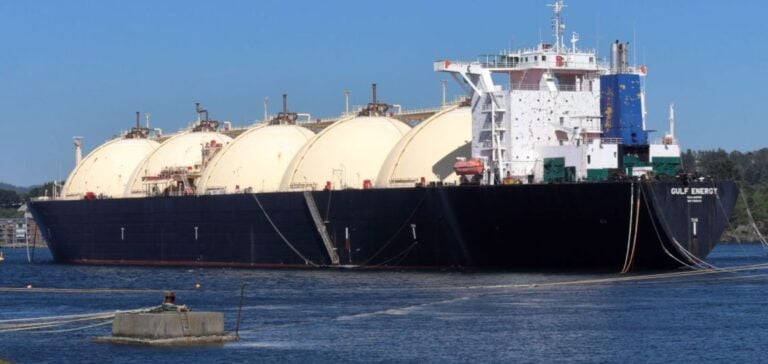Turkey is engaged in discussions with the United States to secure an exemption from sanctions imposed on Gazprombank, Russia’s main lender, to ensure payments for its natural gas imports. These negotiations follow Washington’s recent expansion of sanctions against 118 entities and individuals linked to the Russian financial sector, part of measures aimed at weakening Russia’s economic and military capabilities in the Ukrainian conflict.
Turkish Energy Minister Alparslan Bayraktar warned on Monday that the absence of such a waiver could seriously undermine the country’s energy security. “If we don’t get this exemption, it will be impossible to make payments to Russia, which could have serious consequences,” he told the press before a cabinet meeting in Ankara.
Gazprombank plays a central role in energy transactions between Turkey and Russia, especially for natural gas payments. With around 42% of its gas needs supplied by Russia, Turkey relies heavily on this partnership to meet its energy demands. This dependency highlights Ankara’s diplomatic challenges as it navigates its relations with both the West and Moscow.
A precedent with sanctions against Iran
Minister Bayraktar noted that there have been precedents where the U.S. granted exemptions for transactions with Iran despite sanctions targeting Tehran’s regime. However, he emphasized the complexity of the process required to secure such a waiver. “Lifting sanctions takes time and requires extensive negotiations,” he stated.
This waiver request comes as President Joe Biden’s administration nears the end of its term in January 2025. Bayraktar also questioned the timing of the sanctions, which he believes could further strain relations between Washington and Ankara during an already sensitive period.
A delicate balance in the Ukrainian conflict
Since the outbreak of the war in Ukraine in February 2022, Turkey has strived to maintain a neutral stance while playing a mediator role. Although Ankara has supplied Ukraine with military drones used in the conflict, it has resisted Western calls to impose sanctions on Russia. This position has allowed Turkey to preserve its strategic ties with Moscow, particularly in the energy sector.
This diplomatic tightrope has enabled Turkey to continue its role as an intermediary in peace negotiations while maintaining the country’s energy supply. However, the recent wave of U.S. sanctions on Gazprombank could force Ankara to reconsider its strategy.
An ongoing gas hub project
As part of its energy strategy, Turkey aims to become a regional gas trading hub. To this end, negotiations are underway with Russia to establish a hub in Istanbul, the country’s largest city. Minister Bayraktar confirmed that a memorandum of understanding had been sent to Gazprom to strengthen this collaboration. However, despite these ambitions, Turkey’s current dependence on Russian gas remains a significant obstacle to achieving these goals.






















